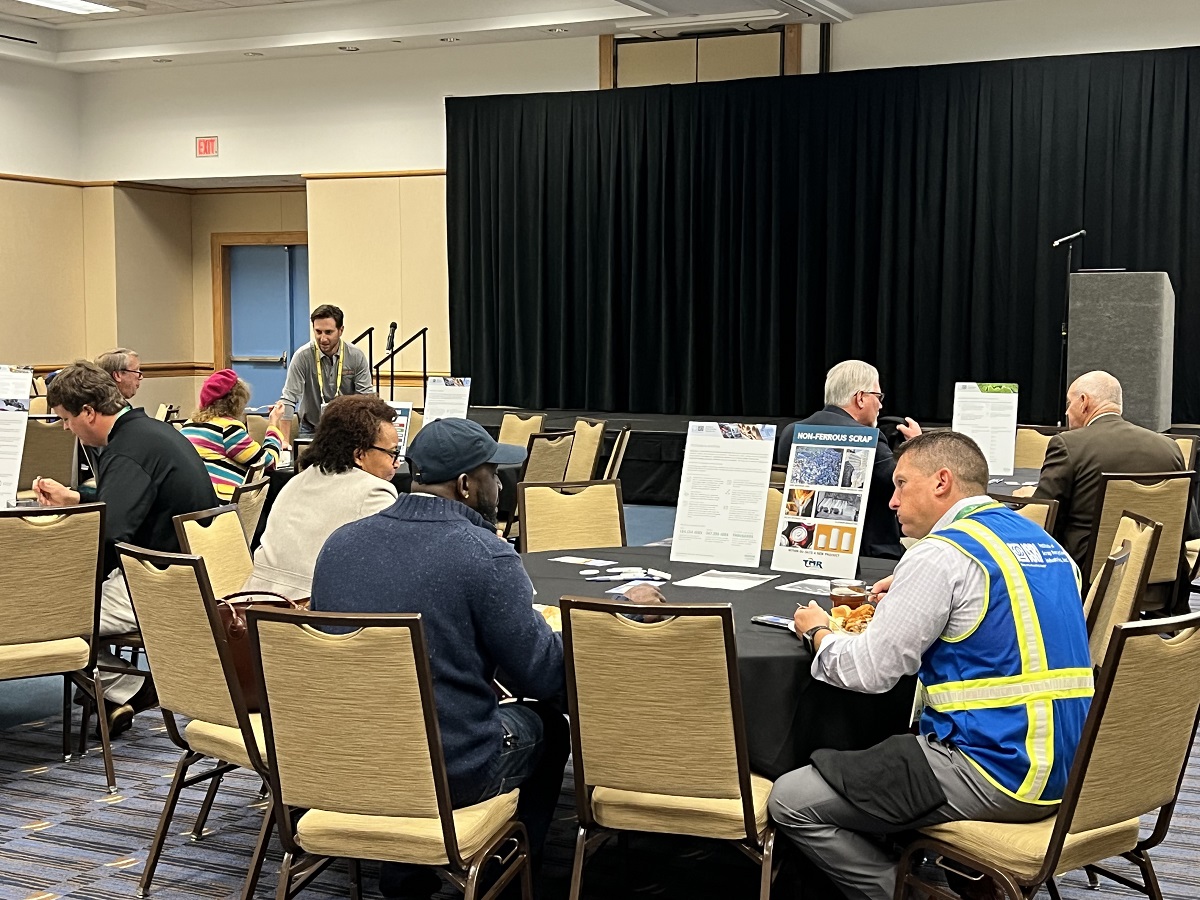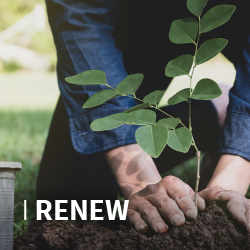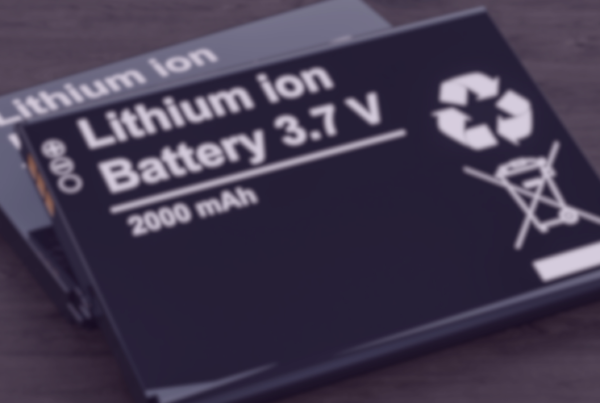Amid heavy rain on Nov. 5, a group of state legislators, and legislative staff piled into a bus outside of the Tampa Convention Center in Tampa, Fla. Their destination was Trademark Metal Recycling’s (TMR) yard in Tampa’s Ybor City neighborhood. They were there to learn about the ins and outs of a recycling facility.
Danielle Waterfield, ISRI’s chief policy officer, was pleased with the number of legislators who went on the tour, especially since it was not only raining but also the last event on the final day of the 2021 National Conference of State Legislatures (NCSL) Legislative Summit. “We had 32 people RSVP, and that exceeded our goal and capacity limit,” she says. “This was a fantastic turnout, particularly given the terrible weather outside.”
The rain washed out the facility’s plans for an outdoor tour along with plastics and paper displays. In their typical manner, ISRI members were quick to adapt and change direction. “The TMR staff adapted, ISRI extended the pre-tour indoor briefing session which was held at the Convention Center, and we had 30 legislators who braved the rain and came on the tour,” says Justin Short, ISRI’s manager of government relations.
The pre-tour session, which attracted more than 50 attendees, was presented as a town hall where ISRI members serving as experts in their respective sectors took questions from legislators. Lunch was provided and tables were set up with placards and some ISRI resources available to attendees including ScrapTheftAlert.com brochures, data from ISRI’s 2021 Economic Impact Study, and handouts on JASON Learning. “We answered questions and discussed challenges that face the scrap industry,” recalls Aaron Gaby, general manager of Chicago Heights, Ill.-based Gaby Iron & Metal. “We had legislators and staff who intentionally stayed after conclusion of the NCSL convention for our roundtable workshop.”

The session was designed so legislators could get any questions or concerns about the industry answered directly by experts. While there were questions about materials recovery facilities (MRF) and residential recycling, policymakers also asked about catalytic converter theft, electronics, paper issues, and tire or rubber recycling. “There was a good diversity of questions, with legislators asking about what legislation would be helpful, questions about recycled content, workflow, and the difference between waste and recycling,” Waterfield says.
One question that stood out to John Bianculli, TMR’s government relations manager, concerned catalytic converter theft and the industry’s involvement in preventing it. “It was an interesting question because of how much our industry does, so I was able to explain and walk through the process of what we do when we make these purchases,” he says. “We also told [lawmakers] about ScrapTheftAlert.com, and Danielle followed up with conceptional elements that go into legislative bills with regard to catalytic converter theft, and the working groups we’re involved in, and how we partner with law enforcement.”
The recycling industry in Florida has a particularly strong relationship with the state’s sheriffs association. Bianculli notes that both parties are working on the issue of penalties for catalytic converter theft. “[Sheriffs are] interested in working with us on that language, which shows the level of relationships there is in Florida between law enforcement and the industry,” he says. “A lot of ISRI members have developed relationships with law enforcement in different states—it’s critical.”
After the workshop, representatives came up to Waterfield with business cards and expressed interest in working with ISRI. “We’ve already had legislators reach out indicating that they want to work with us on catalytic converter theft, for example, and with advancing recycling priorities within their states. It was a very productive session,” she says.
With new knowledge of the industry under their belts and umbrellas in hand, the legislators taking part in the facilities tour swiftly disembarked from the bus and made their way into the enclosed nonferrous section of the TMR site. They were greeted by various TMR staff including the vice presidents of commercial and operations, the general manager of the region, the facility manager, the safety manager, the human resources manager, and Bianculli.
“We started the tour with a safety message from our safety manager because safety is our single most important corporate core value,” Bianculli recalls. The company’s HR manager shared with legislators the hiring challenges the company—and industry—face because of COVID-19. “She also discussed the company’s diversity, equity, and inclusion (DEI) program, which was of interest to legislators and our parent company’s [Nucor] new net-zero steel product, Econiq,” he adds.
TMR staff showed legislators the company’s purchasing process for nonferrous metals, regulated metals, buying requirements, record keeping requirements, and reporting requirements for Florida. “We talked about restricted regulated metals, which are a subset of regulated metals and includes man-hole covers and railroad ties,” Bianculli notes. “We thought it was a very productive experience.” The company had containers and pallets set up with gaylord boxes with different metals separated for legislators to see.
Waterfield recalls a lot of interest and interaction from the legislators throughout the tour. “We actually had to corral them all to get them back on the bus, which was amazing given how much it was pouring rain,” she says. “John Bianculli and the TMR staff did a great job at adapting and adjusting to all that came their way, and a great job of welcoming everyone and capturing their attention.”
As the legislators boarded the bus for the drive back to the convention center, Bianculli hoped they came away feeling that TMR, and other ISRI members, truly are experts in their field. “If [lawmakers] have any questions about the industry, if a bill comes up, or if someone proposes a bill or language for them … call us because we want to work with them,” he says
Gaby, who took the tour, hopes ISRI can continue similar tours at future NCSL summits. “I think they’re a great way of showing legislators exactly what a recycling business looks like, and hopefully eliminating any concerns and miscommunications about the industry,” he states.
Opening your facility’s doors for legislators is an impactful way to tell the story of the recycling industry. “Developing those relationships are critical,” Bianculli says. “When an issue does come up it will be too late at that point to create the relationship—so get involved and stay involved.”
All photos courtesy of ISRI. Featured image caption: Derek Corbett with attendees. Body image caption: Gary Champlin with attendees.
Additional Resources













